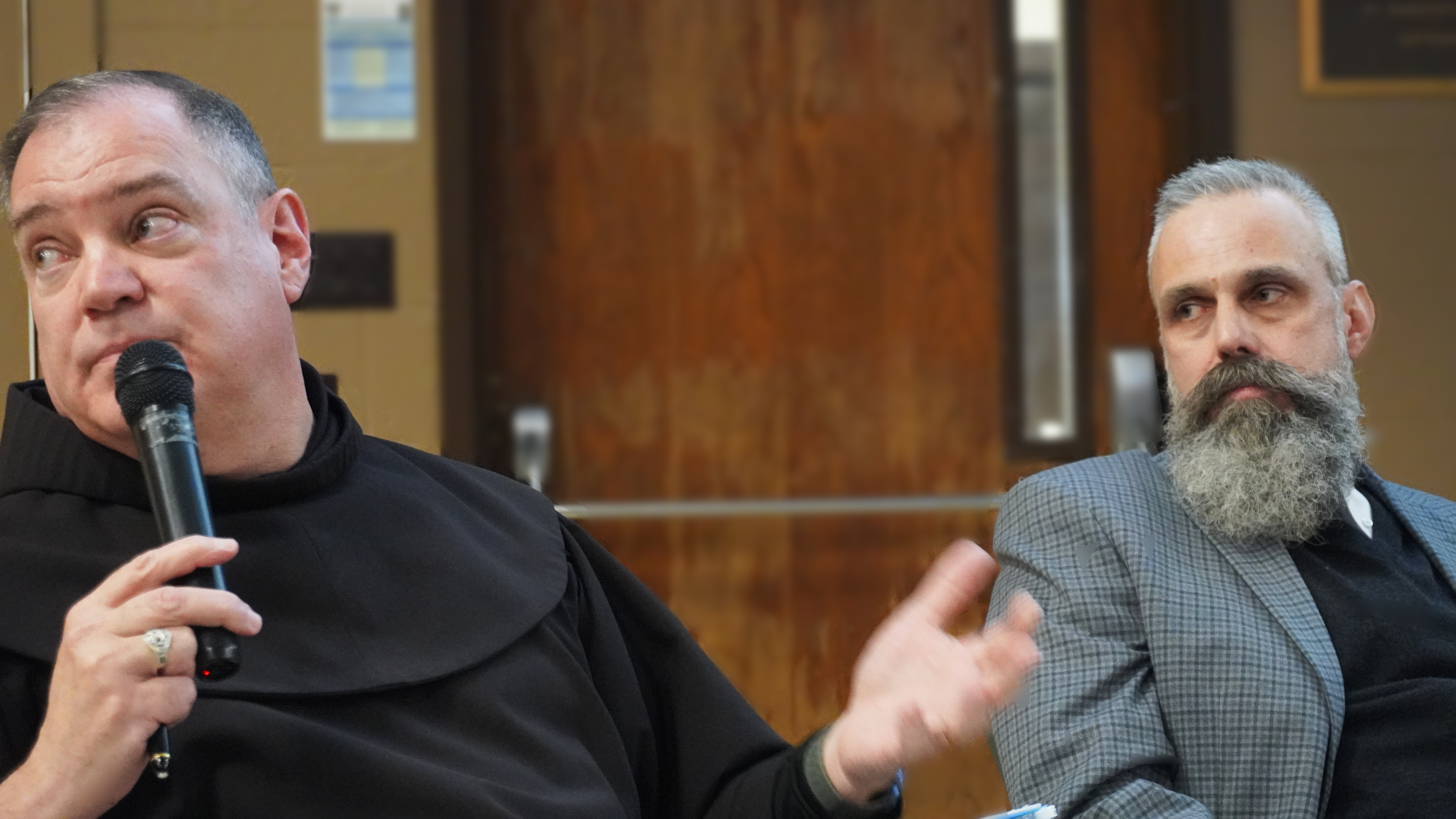By Lian Bunny
Assistant News Editor
Investigative journalists Joshua Pribanic and Melissa Troutman showed their documentary “Triple Divide,” revealing some of the issues with the oversight of hydraulic fracturing, a controversial method of extracting natural gas at St. Bonaventure this week.
The documentary was shown in the Dresser Auditorium of the John J. Murphy Professional Building at 7 p.m. on Wednesday, April 23.
Pribanic and Troutman co-directed the 90-minute film and work for PublicHerald.org, a Pennsylvania-based nonprofit organization. They also recruited actor and advocate Mark Ruffalo to narrate parts of the film.
“Triple Divide” is intended to answer the question, “How are state regulations and industry handling impacts from fracking?” Fracking, or hydraulic fracturing, is the process of taking natural gas from shale rock layers deep in the earth.
Within the documentary, Pribanic and Troutman include facts the public should know concerning the safety of fracking.
Three thousand pounds per square inch is the amount of pressure needed to fracture rock. Most fracking uses 15,000 pounds of pressure per square inch when injecting wells. When the rock fractures, it creates a pathway for the toxins to bubble up due to the pressure and infect the environment.
Companies who are fracking attempt to prevent this by using cement grout. However, the film points out that no type of cement grout can be 100-percent reliable. One out of six injection wells in the United States have well-construction violations, according to the documentary.
“Triple Divide” used Chesapeake Energy as an example. The natural gas company experienced a blowout of a well in Bradford, Penn. A year after the blowout, the streambed became unstable. Gas and cement substance began bubbling up out of the ground.
To combat the issue, Chesapeake conducted a “cement squeeze” in which they attempted to patch the inadequate cement with more cement. The film reported that Chesapeake used 23 cement squeezes in a 28-mile area in Bradford.
The documentary also stressed injustice of conducting pre-drill tests if they are not valued by organizations such as the state Department of Environmental Protection (DEP).
Drawing on the aforementioned blowout in Bradford, the film showed the state’s inadequacy at properly handling fracking consequences.
After the blowout, the Pennsylvania DEP was notified. It took them 13 hours to assemble a response team. Originally, they fined Chesapeake Energy $900,000 for the methane migration into drinking water. Pre-drilling samples of surrounding landowners’ water were sent to the laboratory to be compared with the post-drilling samples.
Chesapeake argued that the results of the tests were inconclusive, because of a landowner’s testimony. According to the landowner, their water had always tasted salty.
Months later, the DEP decided that Chesapeake caused minimal damages to the environment and required no immediate punishment. This report strongly contradicted reports that the stream RWO4 contained newfound traces of methane and sodium along with other contaminants.
“Triple Divide” criticized the handlings of this situation, arguing that one individual’s opinion should not change the overwhelming facts, nor should one man speak for multiple landowners.
Pribanic and Troutman also pointed out that the laboratory testing the samples was biased. The company Science Applications International Corporation (SAIC) shared a board member with Chesapeake Energy, Louis A. Simpson. Chesapeake published the final report as independent science instead of SAIC to avoid drawing attention to the discrepancy.
To add to the problem, the film highlights that predrill tests can cost more than $1,000. However, the DEP could deem it as inaccurate even though, as the documentary pointed out, the quality of water does not naturally tend to change so radically.
At the end of the viewing, Pribanic and Troutman clarified that the purpose of their documentary is not to disparage fracking or the use of natural gases. They reiterated that they chose to focus on the negative impacts from fracking in relation to how the state regulations and industry handle them.
The screening was sponsored by Concerned Citizens of Cattaraugus County, St. Bonaventure University’s School of Journalism and Mass Communication, School of Arts and Sciences, Franciscan Center for Social Concern, College Democrats and Tread Lightly.





